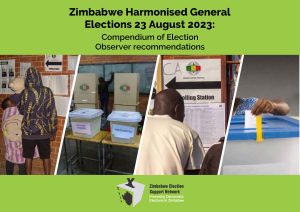On 26 March 2022, Zimbabweans across 28 constituencies and 122 local authorities went to the
polls to cast their votes for the long delayed parliamentary and local authority by-elections. The
indefinite delay was reasoned on the basis of the COVID-19 pandemic and upheld under Statutory
Instrument 225A of 2020 (SI 2020-225A) and (COVID-19 Prevention, Containment and
Treatment) (Amendment) Regulations, 2020, No 4). Ordinarily, and in line with Section 158 (3)
of the Constitution and Sections 39 and 121 of the Electoral Act, by-elections to fill in vacancies
are held within 90 days of the vacancy having arisen. For these by-elections, the Election Resource
Centre (ERC) and Zimbabwe Election Support Network (ZESN) deployed more than 400 trained
and accredited election day observers including deploying 206 observers to six priority
constituencies; Binga North, Chivi South, Epworth, Kwekwe Central, Murewa South, and Mutasa
South where Sample-Based Observations (SBOs) were conducted using a statistically
representative sample of polling stations. Given the timing, it was not possible to conduct SBOs
for all 28 by-elections. These six constituencies were selected to provide geographic spread and to
reflect the political diversity of the country.
This statement on the conduct of the elections is based on ERC and ZESN’s direct observation of
the processes of voting, counting and posting of results for those six constituencies and follows
ERC and ZESN’s situational statements on the opening and set-up of polling stations released 25
March 2022.
